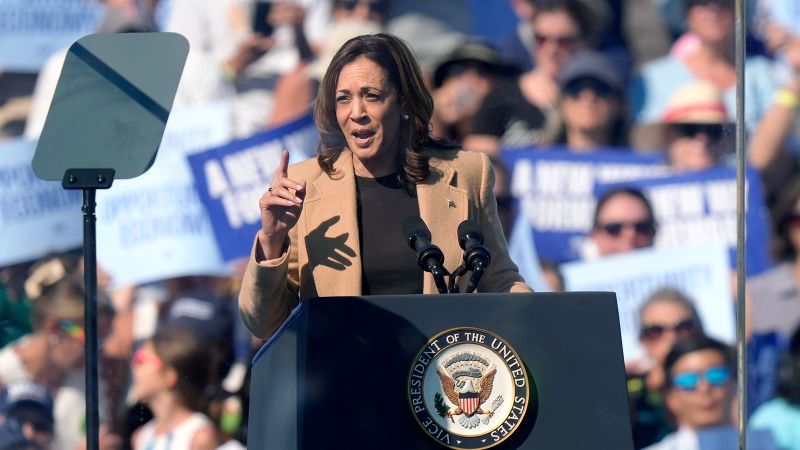In her recent visit to the Throwback Brewery, Kamala Harris demonstrated a shift away from Bidenomics as she positions herself as a change candidate. Her stop in New Hampshire, followed by debate preparation in Pittsburgh, underscores her strategy to distance herself from the current administration and appeal to voters as a fresh option in the upcoming election. Her success hinges on convincing voters that she is not vying for a second term under President Joe Biden.
Central to Harris’ campaign efforts is her appeal to a wide range of Americans disenchanted with high grocery prices, inflation, and housing market issues. She has made promises to address price gouging by supermarkets, provide down payments for low-income homebuyers, and offer tax breaks to small businesses. By proposing a more moderate approach to economic policies than Biden, she aims to court voters who may be skeptical of her ties to the current administration.
Harris’ economic proposals are part of a deliberate strategy to counter Trump’s attempts to portray her as an extreme liberal and bolster her image as a pragmatic leader. Economists are divided on the viability of her plans, with questions arising about potential shortages and inflation in the housing market. However, with the election quickly approaching, Harris is primarily focused on making a strong political impression rather than delving into the technicalities of economic policy.
The political dynamic between Harris and Trump is highlighted by their differing approaches to economic policy. Harris seeks to position herself as a fresh alternative to the status quo, while Trump portrays himself as a change agent who can deliver economic prosperity. The Trump campaign has launched a series of ads criticizing Harris’ economic proposals and warning of dire consequences if she were to win the election. However, both candidates appear more intent on scoring political points than engaging in substantive policy debates.
Despite criticism from Trump and his allies, Harris remains committed to her economic agenda, which includes measures to support small businesses, address inflation, and offer relief to struggling Americans. Trump’s vague promises and controversial tariff proposals have drawn skepticism from economists, who warn of potential negative impacts on consumers and the economy. With the election drawing near, both candidates are focused on leveraging economic issues for political gain rather than prioritizing sound economic policies to benefit the country.
As the election nears, Harris and Trump are engaged in a fierce battle over economic policy and their respective visions for the future. Harris seeks to position herself as a fresh voice for change, while Trump presents himself as a defender of American prosperity. The clash over economic proposals, tax plans, and campaign messaging underscores the high stakes of the election and the divergent paths each candidate represents. Ultimately, the outcome will hinge on which candidate can best convince voters that they are the right choice to lead the country forward.


